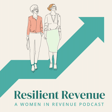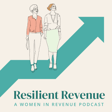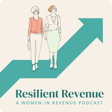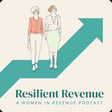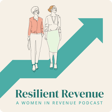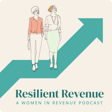
Build Community and Leverage Data: Insights from Sarah Sehgal
Episode Summary:
In today’s episode, Hana Jacover connects with Sarah Sehgal, the Director of Demand Generation for FullStory. Sarah shares her journey, from selling Yellow Pages ads to mastering digital marketing in the B2B Saas space.
She emphasizes the importance of data-driven decision-making, the evolving trends in the revenue landscape, and the power of community in shaping modern marketing strategies.
Key Topics Discussed:
- Sarah’s Marketing Journey: We learn about Sarah’s transition from selling ads for the Yellow Pages, to her thriving journey into digital marketing. We also touch on her understanding and empathy for sales.
- Evolving Revenue Trends: We talk about her shift in focus from growth to improving customer experience and retention, as well as the importance of maximizing tool efficiency to ensure ROI.
- Data’s Role in Storytelling: We explore the connection between data and storytelling, and how data plays a vital role in informing go-to-market strategies and gaining insights on how to better understand customers.
- The Power of Community: We dive into the value of communities like Women in Revenue and how they offer a platform for marketers to share, learn, and grow together.
Resources Mentioned:
Be a part of Women in Revenue and gain insights, share experiences, and stay updated with the latest trends in revenue generation.
Question to consider: Are your marketing strategies data-driven?
This podcast is brought to you by Women in Renuve. If you’re a resilient woman in a revenue role and crave connection, join our community!
